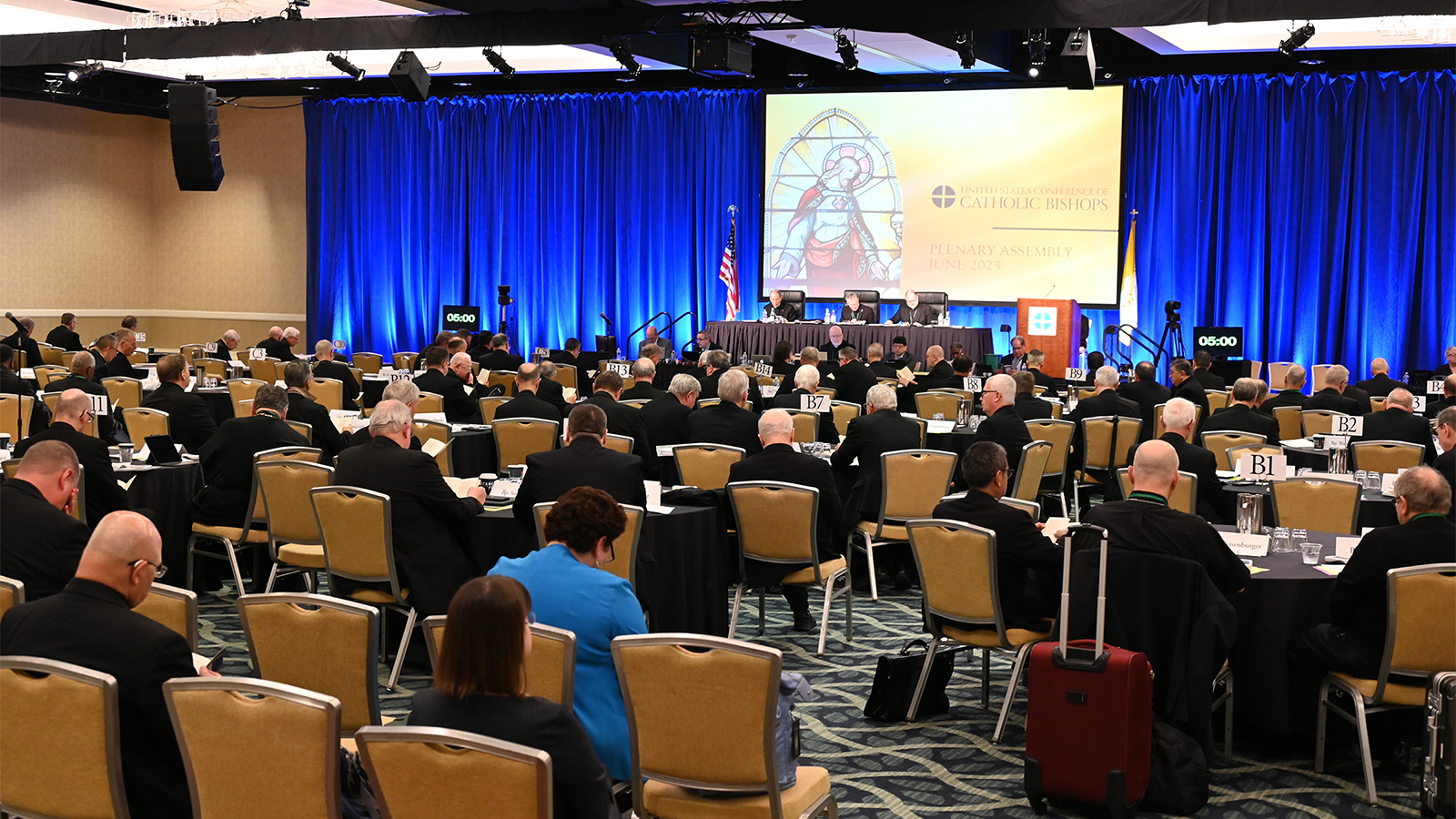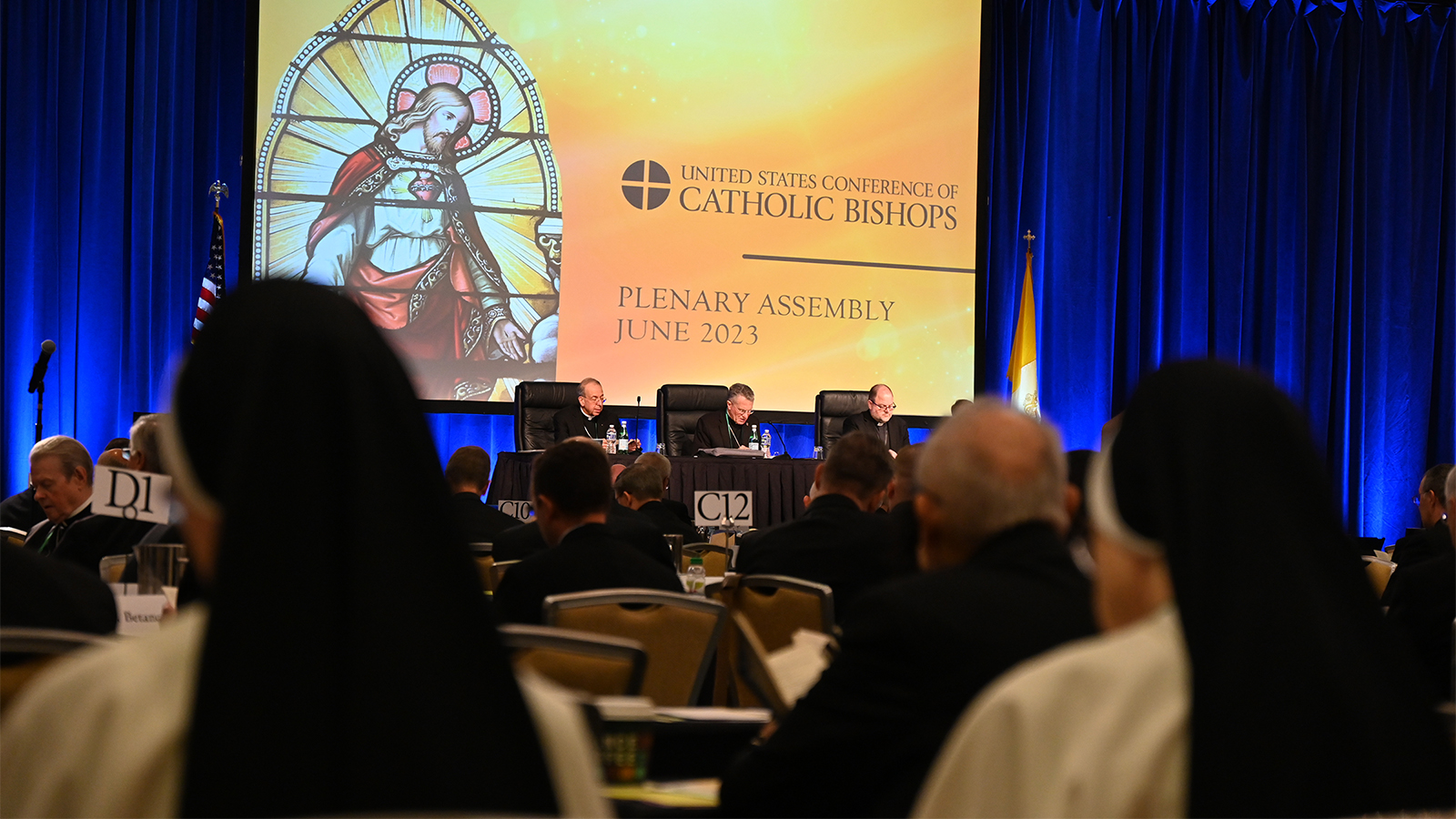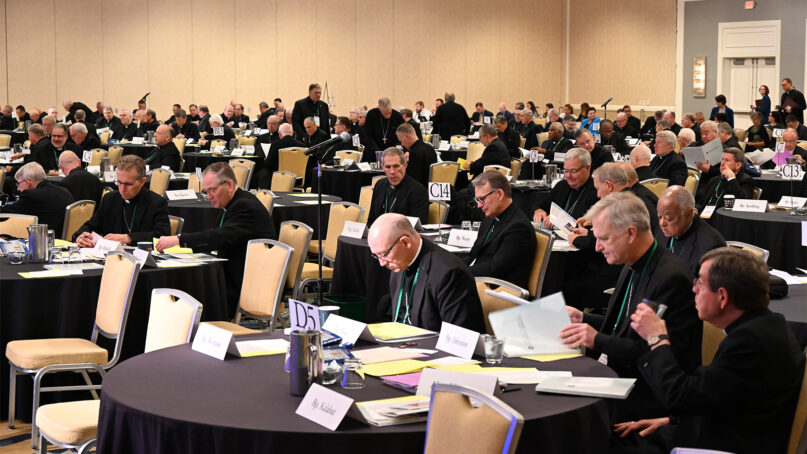ORLANDO, Florida (RNS) — The U.S. Conference of Catholic Bishops voted on Friday (June 16) to amend its directives for U.S. Catholic health care organizations, setting in motion a process that could bar Catholic hospitals and other church-affiliated institutions from providing gender-affirming treatment to transgender people.
The vote occurred during the USCCB’s spring meeting in Orlando. It passed via voice vote, with no audible dissenters or abstentions.
Technically, the procedural vote doesn’t specifically bar gender-affirming care but allows the USCCB’s Committee on Doctrine to begin the process of amending the Ethical and Religious Directives for Catholic Health Care Services — the “authoritative guidance on certain moral issues” for Catholic health care institutions.
Bishop Daniel Ernesto Flores of the Diocese of Brownsville, who chairs the USCCB’s doctrine committee, made the goal of the vote clear, however: In introducing the resolution, he said the doctrine committee desired to “incorporate” into health care directives arguments from a statement issued in March by the Committee on Doctrine discouraging Catholic health care groups from performing various gender-affirming medical procedures. Such procedures, it suggested, are “injurious” and do not respect the “intrinsic unity of body and soul.”
The statement, known as a doctrinal note, argued that while medical science should be used to “repair a defect in the body,” procedures that fall under the category of gender-affirming care are “not morally justified.”

The U.S. Conference of Catholic Bishops meets in Orlando, Florida, Friday, June 16, 2023. RNS photo by Jack Jenkins
During discussion before the vote on Friday, Cardinal Joseph Tobin of the Archdiocese of Newark urged fellow bishops to consult with transgender people in developing any new guidelines. Other prelates reminded their colleagues that Catholic hospitals serve a broad swath of populations, with Archbishop Paul Etienne of the Archdiocese of Seattle noting that 1 in 7 patients in the U.S. is served by Catholic hospitals.
At one point, Bishop Michael Olson of Fort Worth, who also sits on the doctrine committee, said that “gender ideology” was “preying upon” transgender people.
Catholics for Choice, an activist group, was quick to condemn the vote.
“Amending the ERDs and rejecting gender-affirming healthcare, which nearly every mainstream medical and mental health organization recognizes as medically necessary, attacks the basic human rights of some of the most vulnerable and marginalized people in society — the very same people whose needs Jesus teaches us to put first,” Catholics for Choice President Jamie Manson said in a statement.
Manson also criticized the bishops’ earlier doctrinal note, calling it “outrageously transphobic.”
Others, such as the pro-LGBTQ Catholic organization New Ways Ministry, argued the bishops have ignored the risk of suicide among transgender youth, which experts have reported is notably higher than in the rest of the population.

Two nuns, foreground, attend the U.S. Conference of Catholic Bishops meeting in Orlando, Florida, Thursday, June 15, 2023. RNS photo by Jack Jenkins
A coalition led by Catholic nuns and representing thousands of women religious and associates at partner groups released a letter a few weeks after the bishops’ statement, declaring transgender, nonbinary and gender-expansive individuals “are beloved and cherished by God.” The letter was seen as a de facto rebuke of the bishops’ statement.
In recent months, 18 states have restricted or banned gender-affirming care. In Florida, GOP presidential candidate Gov. Ron DeSantis signed a bill in May that not only banned gender-affirming care for transgender youth, but also made it harder for adults to receive such treatment.





